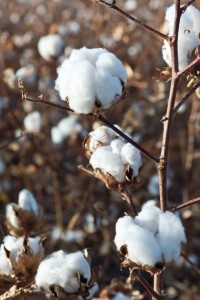I spent a good part of this week at county Farm Bureau meetings visiting with Texas agricultural producers. Last Saturday, I was in Longview, TX for the Gregg County Farm Bureau meeting where I spoke about current Hot Topics in Agricultural Law. Many thanks to Glenn Richardson for the invitation. On Wednesday evening I made the drive to Huntsville for the Walker County Farm Bureau meeting where we discussed water rights in Texas. I appreciate Carl thinking of me and including me on the program. Welcome to those of you visiting the Texas Agriculture Law Blog from one of these great events.
It has been a week full of ag law related news across the country! Here are some of the headlines.
*Federal Judge Strikes Down Environmentalists’ Lawsuit Over Dunes Sagebrush Lizard. A federal district judge has ruled against a group of environmental plaintiffs in their lawsuit seeking that the US Fish and Wildlife Service reconsider its decision not to list the dunes sagebrush lizard under the Endangered Species Act. Prior to the USFWS decision not to list the species in June 2012, landowners, oil and gas companies, agricultural interests, biologists, and state and federal agencies worked together to impose the Texas Conservation Plan to protect the lizard and abrogate the need for its listing under the Act. After considering all evidence, including the impact of t he Conservation Plan, the USFWS determined that it was not necessary to list the lizard. This week, that decision was upheld and the court found that the USFWS based the non-listing on the best available scientific and commercial data as required by the Act. [Read article here.]
* Lesser Prairie Chicken Case to Be Decided in Oklahoma. In more Endangered Species Act litigation news, a federal judge has decided that a lawsuit challenging the listing of the lesser prairie chicken will be decided in Oklahoma federal court, rather than moved to Washington, DC. This is seen as a victory for the plaintiffs in the case–Kansas, Oklahoma and North Dakota (who may soon be joined by Nebraska and New Mexico–who filed suit against the United States Fish and Wildlife Service arguing that the chicken did not meet the qualifications for being listing as threatened under the Act. [Read article here.]
* Judge Dismisses Challenge to California Egg Law. A federal judge in California (these federal judges were focused on ag issues this week!) has dismissed a lawsuit challenging a California law requiring that all eggs sold in the state be laid by hens housed in cages meeting with California Proposition 2. Under California law, hens may not be kept in battery cages in the state and, pursuant to the law at issue in this lawsuit, no eggs may be sold in California if they were laid by hens in such cages, regardless of whether such cages are legal in the state where the eggs were produced. Six states–Missouri, Nebraska, Oklahoma, Alabama, Kentucky, and Iowa challenged the law, arguing that it would cost their states millions of dollars to comply with these requirements, which violate the negative commerce clause. The judge did not address the merits of the case, but instead found that the states did not have standing to challenge the law, as it did not impact a large number of the states’ citizens, but instead only a small number of egg producers. [Read article here.]
* US and Brazil End WTO Cotton Battle. The ongoing dispute between the United States and Brazil before the World Trade Organization has come to an end when the two nations reached a settlement. The dispute, which has lasted for over a decade, involved claims by Brazil against he United States who argued that certain federal agricultural support programs were inconsistent with WTO laws. Twice, WTO arbitrators sided with Brazil and in 2009, countermeasures were approved to be taken against the United States, but these countermeasures were avoided by agreement in 2010. As part of the settlement agreement ending the dispute, Brazil will terminate the case and give up its rights to counter-measures against the United States and agreeing not to bring actions against cotton support programs while the current Farm Bill is in place. The United States will make payment of $300 million to the Brazil Cotton Institute. [Read articles here and here.]
* Idaho Dairyman Combats Tarnished Image. The Idaho dairy industry has taken a hit in the media for several years. An undercover video showing abuse of cows at one dairy in the state, followed by push back after the passage of the state’s agricultural protection law, more commonly known as an “ag gag” law. John Wind, Jr., an Idaho dairy farmer, is doing his part to help inform the public about what goes on at his operation. He frequently gives tours of his operation and invited tv cameras to his operation to see how milk is produced. He also reiterates the importance of animal care with employees and brags on what great milkers he has hired. In my opinion, this is exactly what our industry needs to be doing in the face of bad press. Telling our story is critical–if we do not tell consumers the truth, others will tell them their version of the truth. [Read article and see video here.]



















